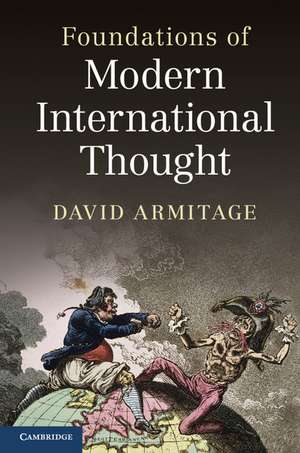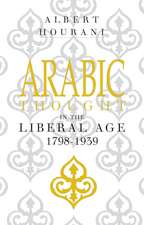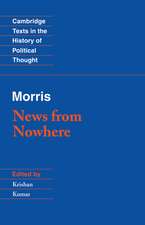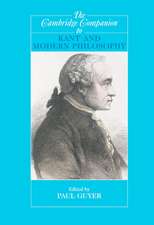Foundations of Modern International Thought
Autor David Armitageen Limba Engleză Hardback – 28 noi 2012
| Toate formatele și edițiile | Preț | Express |
|---|---|---|
| Paperback (1) | 191.12 lei 3-5 săpt. | |
| Cambridge University Press – 28 noi 2012 | 191.12 lei 3-5 săpt. | |
| Hardback (1) | 446.34 lei 6-8 săpt. | |
| Cambridge University Press – 28 noi 2012 | 446.34 lei 6-8 săpt. |
Preț: 446.34 lei
Nou
Puncte Express: 670
Preț estimativ în valută:
85.42€ • 88.85$ • 70.52£
85.42€ • 88.85$ • 70.52£
Carte tipărită la comandă
Livrare economică 12-26 aprilie
Preluare comenzi: 021 569.72.76
Specificații
ISBN-13: 9780521807074
ISBN-10: 0521807077
Pagini: 311
Ilustrații: 2 b/w illus.
Dimensiuni: 158 x 235 x 19 mm
Greutate: 0.64 kg
Ediția:New.
Editura: Cambridge University Press
Colecția Cambridge University Press
Locul publicării:Cambridge, United Kingdom
ISBN-10: 0521807077
Pagini: 311
Ilustrații: 2 b/w illus.
Dimensiuni: 158 x 235 x 19 mm
Greutate: 0.64 kg
Ediția:New.
Editura: Cambridge University Press
Colecția Cambridge University Press
Locul publicării:Cambridge, United Kingdom
Cuprins
Introduction: rethinking the foundations of modern international thought; Part I. Historiographical Foundations: 1. The international turn in intellectual history; 2. Is there a pre-history of globalisation?; 3. The elephant and the whale: empires and oceans in world history; Part II. Seventeenth-Century Foundations: Hobbes and Locke: 4. Hobbes and the foundations of modern international thought; 5. John Locke's international thought; 6. John Locke, Carolina and the Two Treatises of Government; 7. John Locke: theorist of empire?; Part III. Eighteenth-Century Foundations: 8. Parliament and international law in eighteenth-century Britain; 9. Edmund Burke and Reason of State; 10. Globalising Jeremy Bentham; Part IV. Building on the Foundations: Making States since 1776: 11. The Declaration of Independence and international law; 12. Declarations of independence, 1776–2012.
Recenzii
'In this masterly set of essays, David Armitage considers the significance of globalization for the past history of the European state and the political thought it generated. He sets the agenda for the next phase of research and writing on the great subject.' J. G. A. Pocock, Folger Institute and Johns Hopkins University
'This brilliantly evocative collection of essays covers the evolution of international political thought all the way from the seventeenth to the twenty-first centuries. David Armitage has virtually created a new field of historical, and political inquiry. He has also shown just how important the concerns of the past three centuries have been to the way we think about international politics today. We are all - historians, political philosophers, policy-makers, international lawyers - greatly in his debt.' Anthony R. Pagden, University of California, Los Angeles
'David Armitage has done as much as anyone to constitute the history of international thought as a recognizable field of study among historians, political theorists, and scholars of international relations over the last decade. The vibrancy and intellectual energy of the field owe a great deal to his scholarly imagination, his breadth of historical knowledge, and his rare ability to discern and characterize problem spaces and areas of inquiry both in the past and today. This book brings together his pioneering essays on the neglected international facets of key thinkers and political moments, spanning the modern period from the early seaborne empires to the proliferation of new states in the nineteenth century. Wide-ranging, informed by a striking unity of purpose, and consistently engaging, this book gently but firmly unsettles many of the myths … that have long lain at the heart of international studies.' Jennifer Pitts, University of Chicago
'David Armitage is one of the world's leading historians of political thought. Over the last twenty years he has helped to define the ways in which historians and political theorists study the ideological dimensions of empire and international politics. Foundations of Modern International Thought collects some of his most important work. Combining virtuoso agenda-setting essays with penetrating historical studies of seminal thinkers, this landmark volume is likely to shape scholarship for years to come.' Duncan Bell, University of Cambridge
'David Armitage is one of the leading figures in the 'international' turn in intellectual history. In Foundations of Modern International Thought he brilliantly traces the various ways in which modern international relations and international law were shaped between the seventeenth and early nineteenth centuries. The culmination of over a decade's work and thought, this is a work of commanding erudition, by a scholar at the height of his powers, that will justly be seen as a landmark in fields as varied as intellectual history, political thought, International relations theory and international legal theory.' Nicholas Rengger, University of St Andrews
'Wide-ranging … interesting.' Morning Star
'Armitage's approach is both groundbreaking as history and relevant to our collective situation, because what he's engaged in is the historian's project at its most ambitious and rewarding.' Prospect Online
'It is a piece of well-argued scholarship and reasserts powerful claims, notably the call for internationalizing and globalizing history.' Walter Rech, International Journal of Constitutional Law
'… profound and erudite …' Gilles Andréani, Survival: Global Politics and Strategy
'This brilliantly evocative collection of essays covers the evolution of international political thought all the way from the seventeenth to the twenty-first centuries. David Armitage has virtually created a new field of historical, and political inquiry. He has also shown just how important the concerns of the past three centuries have been to the way we think about international politics today. We are all - historians, political philosophers, policy-makers, international lawyers - greatly in his debt.' Anthony R. Pagden, University of California, Los Angeles
'David Armitage has done as much as anyone to constitute the history of international thought as a recognizable field of study among historians, political theorists, and scholars of international relations over the last decade. The vibrancy and intellectual energy of the field owe a great deal to his scholarly imagination, his breadth of historical knowledge, and his rare ability to discern and characterize problem spaces and areas of inquiry both in the past and today. This book brings together his pioneering essays on the neglected international facets of key thinkers and political moments, spanning the modern period from the early seaborne empires to the proliferation of new states in the nineteenth century. Wide-ranging, informed by a striking unity of purpose, and consistently engaging, this book gently but firmly unsettles many of the myths … that have long lain at the heart of international studies.' Jennifer Pitts, University of Chicago
'David Armitage is one of the world's leading historians of political thought. Over the last twenty years he has helped to define the ways in which historians and political theorists study the ideological dimensions of empire and international politics. Foundations of Modern International Thought collects some of his most important work. Combining virtuoso agenda-setting essays with penetrating historical studies of seminal thinkers, this landmark volume is likely to shape scholarship for years to come.' Duncan Bell, University of Cambridge
'David Armitage is one of the leading figures in the 'international' turn in intellectual history. In Foundations of Modern International Thought he brilliantly traces the various ways in which modern international relations and international law were shaped between the seventeenth and early nineteenth centuries. The culmination of over a decade's work and thought, this is a work of commanding erudition, by a scholar at the height of his powers, that will justly be seen as a landmark in fields as varied as intellectual history, political thought, International relations theory and international legal theory.' Nicholas Rengger, University of St Andrews
'Wide-ranging … interesting.' Morning Star
'Armitage's approach is both groundbreaking as history and relevant to our collective situation, because what he's engaged in is the historian's project at its most ambitious and rewarding.' Prospect Online
'It is a piece of well-argued scholarship and reasserts powerful claims, notably the call for internationalizing and globalizing history.' Walter Rech, International Journal of Constitutional Law
'… profound and erudite …' Gilles Andréani, Survival: Global Politics and Strategy
Notă biografică
Descriere
This insightful and wide-ranging volume traces the genesis of international intellectual thought, connecting international and global history with intellectual history.
















